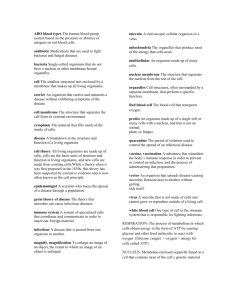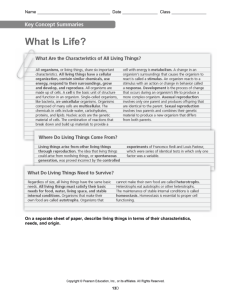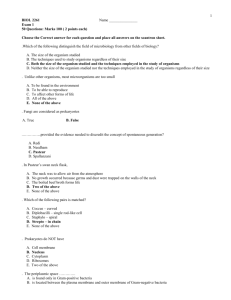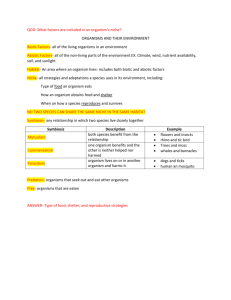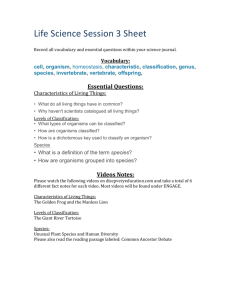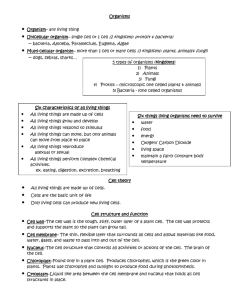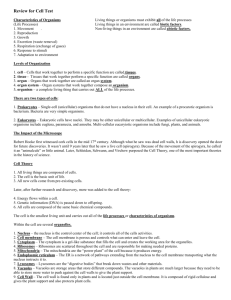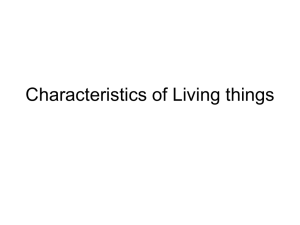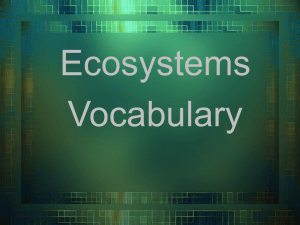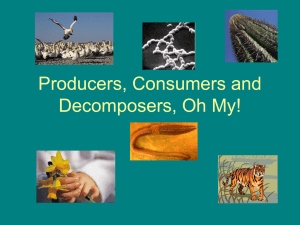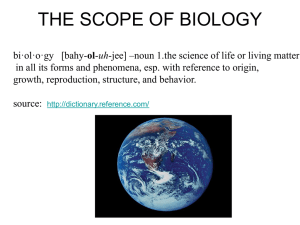cell membrane
advertisement
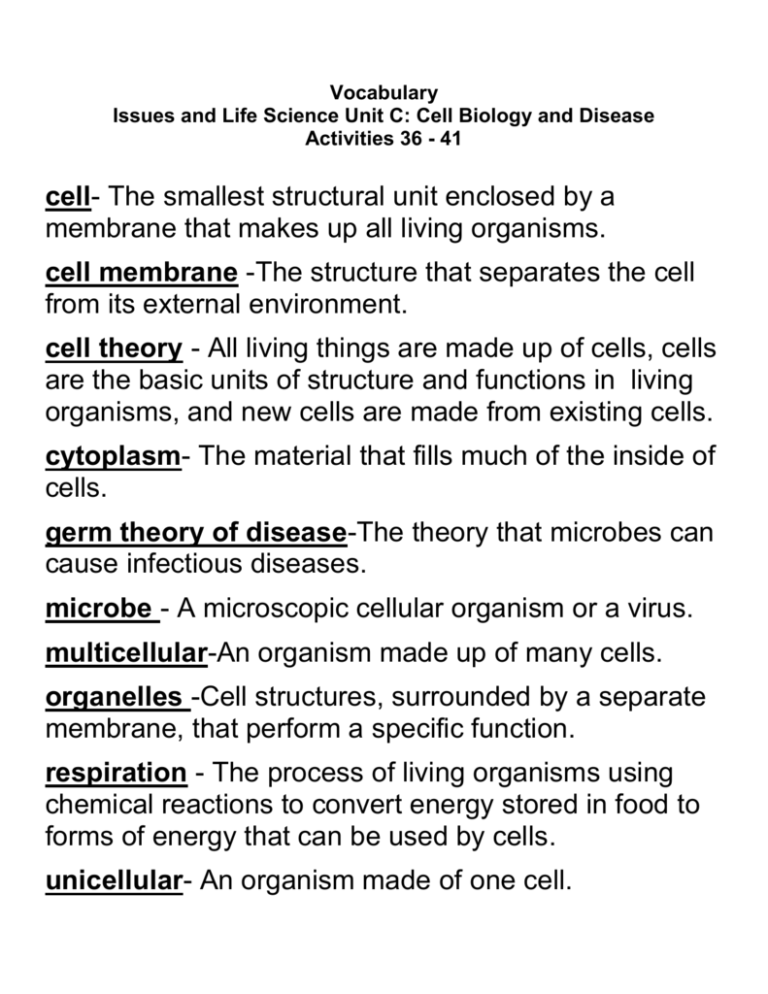
Vocabulary Issues and Life Science Unit C: Cell Biology and Disease Activities 36 - 41 cell- The smallest structural unit enclosed by a membrane that makes up all living organisms. cell membrane -The structure that separates the cell from its external environment. cell theory - All living things are made up of cells, cells are the basic units of structure and functions in living organisms, and new cells are made from existing cells. cytoplasm- The material that fills much of the inside of cells. germ theory of disease-The theory that microbes can cause infectious diseases. microbe - A microscopic cellular organism or a virus. multicellular-An organism made up of many cells. organelles -Cell structures, surrounded by a separate membrane, that perform a specific function. respiration - The process of living organisms using chemical reactions to convert energy stored in food to forms of energy that can be used by cells. unicellular- An organism made of one cell. Vocabulary Issues and Life Science Unit C: Cell Biology and Disease Activities 36 - 41 cell- The smallest structural unit enclosed by a membrane that makes up all living organisms. cell membrane -The structure that separates the cell from its external environment. cell theory - All living things are made up of cells, cells are the basic units of structure and functions in living organisms, and new cells are made from existing cells. cytoplasm- The material that fills much of the inside of cells. germ theory of disease-The theory that microbes can cause infectious diseases. microbe - A microscopic cellular organism or a virus. multicellular-An organism made up of many cells. organelles -Cell structures, surrounded by a separate membrane, that perform a specific function. respiration - The process of living organisms using chemical reactions to convert energy stored in food to forms of energy that can be used by cells. unicellular- An organism made of one
